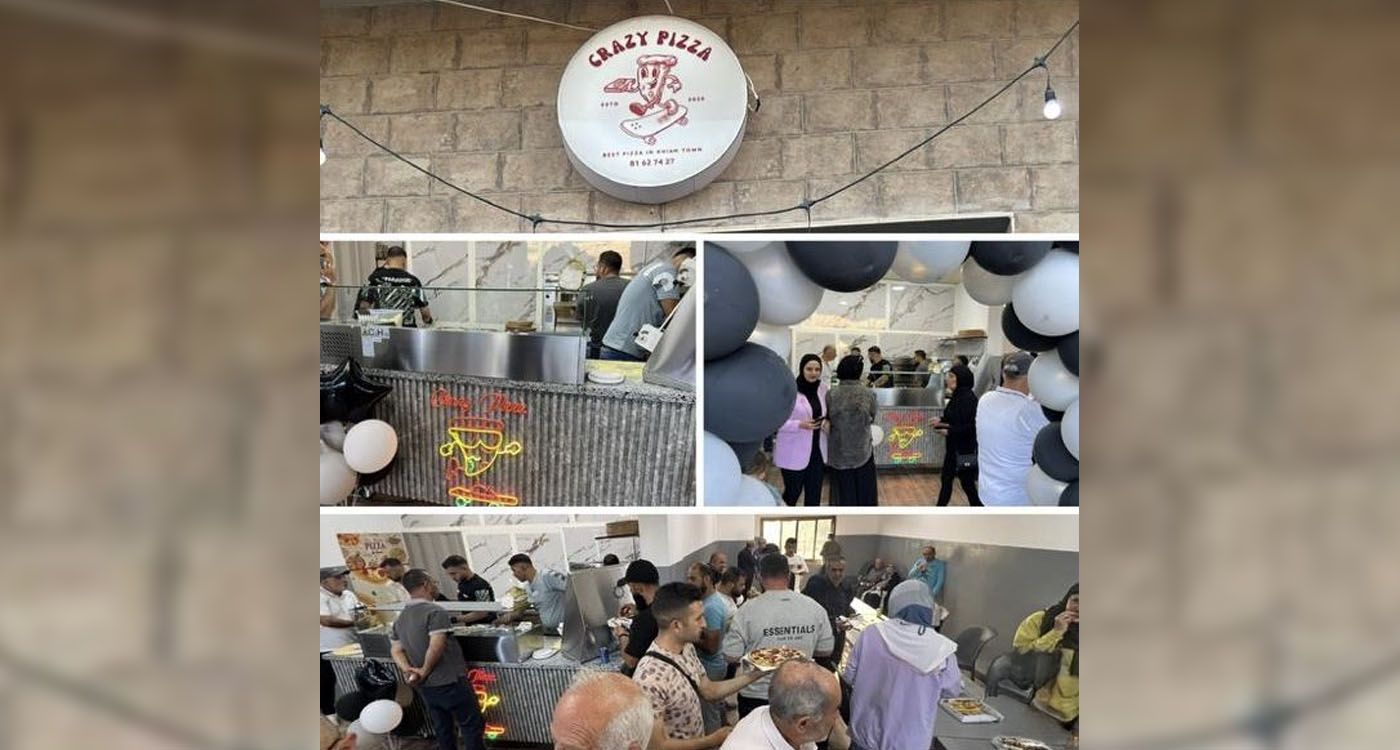
In South Lebanon, where the scars of past conflicts still run deep, a fresh wave of energy is quietly taking root. It isn’t the product of government initiatives, but rather the determined work of a young generation refusing to succumb to despair. Against all odds, young entrepreneurs are returning to their villages, reopening shops, cafés, restaurants and small businesses, investing their time and spirit in reviving the local economy. With remarkable resilience and a vision anchored in their communities, they are breathing life back into the region, and rewriting the story of a Lebanon determined to rise again.
Starting or restarting a business, especially in Marjayoun-Hasbaya, is an act of faith – a bold bet on a future many still see as uncertain. When Wassim decided to open his café, many warned him it was too risky.
“My café, Papito, has become a meeting place in Marjayoun – a space where people come together and share ideas. By modernizing it and introducing new flavors, it attracts both young people and older generations.”
“The greatest challenge? Stability in our region. We live day by day, but we adapt,” he says.
Survival and Hope: A Courageous Gamble
In the narrow streets of Khiam, the scars of recent conflicts are everywhere – shattered facades, collapsed roofs, broken shop windows. Yet amid this desolation, an unlikely force is emerging: a generation of young people refusing to let their village slip into oblivion.
The reopened shops and cafés are more than just places to buy goods.
“People don’t just come to eat pizza here,” says Hadi, 25, who revived a small local restaurant. “They come to reclaim a slice of everyday life, a space to connect with others.”
Life in South Lebanon is a constant struggle. Power outages are the norm, the prices of raw materials wildly fluctuate, and the looming threat of renewed conflict casts a shadow over every project.
“We’ve learned to dance with uncertainty,” explains Abdallah, the owner of a camera shop. “At first, every blackout was a disaster. Now, we’ve invested in solar panels and batteries to power our essential equipment. When the grid fails, our lights stay on. Autonomy is everything.”
“That’s our resilience: turning constraints into strength,” he concludes.
Between Memory and Innovation
These young pioneers are not just reviving businesses – they are safeguarding cultural memory.
“My shop is filled with antiques and embroideries passed down through generations,” says Youmna, 30. “When I sell a piece, I tell its story. Locals and expatriates alike are moved. We are still here. Our traditions live on.”
“But I also sell modern creations. It’s my way of honoring the past while embracing the future and innovation.”
At 27, Yara left Paris and a fast-paced job to return to Marjayoun, working in marketing for a local mouneh (preserved foods) company. Despite insecurity and work challenges, she has no regrets.
“Here, we’re not alone in our struggles – we understand each other, support each other, and share the same traumas. I needed to return to Lebanon’s human warmth, to my friends and family.”
The Stark Absence of the State
While their commitment is strong, the young entrepreneurs face the near-total lack of support from the authorities. The Lebanese state appears either powerless or indifferent to the hardships of border communities.
“We’ve never seen any Ministry representatives, and no tangible assistance,” laments Omar, the owner of a gym in Kawkaba, in the Marjayoun district.
“We feel like second-class citizens, forgotten at the frontier. After each war, promises of aid are made – but the funds either never materialize or are mere tokens,” he adds with frustration.
Majdi, a 29-year-old farmer from Wazzani, tells a similar story. His lands were devastated, his home is still unlivable, and he lost his farm – yet he has bravely resumed working the fields.
“The bureaucratic maze involved in obtaining reconstruction permits is a nightmare. We feel abandoned, left to fend for ourselves,” says Malek, 24, a hair salon owner in Marjayoun.
Guardians of Memory, Forgers of the Future
For the young people of South Lebanon, reviving a business is about much more than earning a living – it is an act of preserving culture and history.
“We want to protect our identity while also opening ourselves to the world. Our local cheese is exceptional. One day, I hope to export it and show everyone what South Lebanon can produce – beyond images of war,” says Rana.
This ambition grows from a deep connection to their homeland and a desire to earn recognition beyond Lebanon’s borders – to defy the stereotype of a region condemned to conflict.



Comments